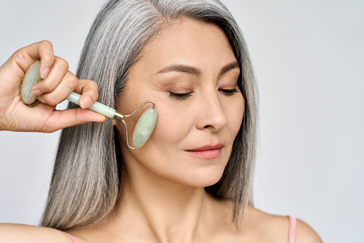Drivers for improving immunity
Posted by Mike Miryala on

Overview
The COVID-19 pandemic wreaked havoc on the entire world, reminding people of the vitality of our immune systems and how crucial it is to optimize their function.
Unfortunately, the online community is an expert at spreading misinformation and false claims about certain products or activities that magically empower the immune system.
In reality, scientists are still researching the ins and outs of immunity to identify potential factors that optimize its function. These may include exercise, diet, yoga, meditation and more.
In this article, we will cover the major habits and substances that were proven by peer-reviewed, randomized clinical trials to be effective in boosting the immune system.
How to optimize your immune system
1) Dietary choices
The type of foods you eat will play a major role in how efficient your immune system is.
You see, food provides our cells with vitamins, minerals, and antioxidants, which are essential for the production of immune cells, as well as the preservation of their optimal function.
On the other hand, some food types may be the reason that weakens your immune system. In a study conducted by Evidence-Based Complementary and Alternative Medicine, researchers found that many foods possess immune-modulating properties, including broccoli, garlic, turmeric, and ginger.
Due to how important the influence of foods on the immune system is, the next sections will cover some compounds with a major impact on immunity.
2) Zinc
Zinc is a primordial mineral that ensures the function of many metabolic processes, including the production of immune cells.
The only source of zinc is through dietary intake, which may be a problem since not everyone gets sufficient amounts of this mineral from their foods.
For this reason, it is recommended to include zinc-rich foods in your diet and/or take supplements once your doctor approves it.
3) Vitamin B
There are several forms of vitamin B that mediate the function of the immune system.
The primary role of these compounds is to contribute to the production of new immune cells and maintain their functionality.
In general, people get sufficient quantities of B vitamins through their diet; however, supplementation is recommended in some cases.
4) Vitamin C
Most people associate vitamin C with treating the common cold and flu symptoms during the winter season.
Despite the lack of any evidence to support vitamin C’s ability to treat and/or prevent the common cold, some findings back up this compound’s ability to promote white blood cell production.
Regardless of the inconclusiveness of these statements, many people swear by vitamin C as a treatment option for upper respiratory infections.
5) Physical activity
A large number of clinical studies confirmed the importance of regular exercise on the function of the immune system.
According to a 2018 study, researchers concluded that “a single bout of exercise is known to stimulate immune cells during efforts and during recovery.”
While the underlying mechanisms are still under debate, experts theorize that exercise stimulates the release of hormones and neurotransmitters that positively impact the intercellular signaling of immune cells.
6) Sleep quality
Sleep disorders (e.g., hypersomnia, insomnia, narcolepsy) are well-documented disrupters of several physiological functions, including hormonal balance, cognitive ability, and immune function.
For this reason, doctors recommend sleeping around 7-8 hours a night to suppress the activation of certain pro-inflammatory metabolic pathways that dysregulate the immune system.
Keep in mind that the quality of the sleep you get is as important as its duration. Some people might sleep for 9 hours every night but still feel restless and drowsy during the day. This is what’s referred to as non-refreshing sleep in the medical community, which is a real issue that should be promptly managed.
7) Just relax!
Chronic stress is a common cause of immunosuppression.
As you become anxious, the adrenal glands release cortisol, which is the major stress hormone in the body. This compound has anti-inflammatory and immunosuppressive properties that interfere with numerous biochemical pathways.
Scientists found that the regular practice of anxiolytic activities (e.g., yoga, meditation, listening to music) has incredible effects on our internal stress response circuit and the function of the immune system.
In other words, the more relaxing activities you indulge in, the more efficient your immune cells will become.
8) Improve hygiene
Improving your hygiene might not directly impact the immune system; however, it will significantly decrease your chances of getting infected.
Washing your hands more frequently, avoiding contact with sick individuals, and seeking medical attention early on are all advisable habits that will make your life easier.
Note that there is a line between being aware of your hygiene and paranoia.
In fact, scientists advise against extreme measures of protection against microbes, as it might precipitate autoimmune diseases according to the hygiene hypothesis.
Takeaway message
Optimizing the function of the immune system is extremely important to prevent infections and serious diseases.
Hopefully, this article helped you appreciate the impact of our everyday life on immunity, but if you still have any questions, please don’t hesitate to ask in the comment section below.

Check out these immunity-boosting supplements:
Turmeric Gummies
- Delicious 100% Vegan Gummies Loaded with Turmeric and Black Pepper
- Alleviates chronic inflammation and reduces joint pain
- Helps fight free radicals and boost immune system
- Naturally calms and soothes various digestive issues
ElderShield Gummies
- 100% Vegan Gummies with a Blend of Elderberry, Vitamin C, and Zinc -- Clinically Proven to support strong and healthy immune function
- Helps fight inflammation and elevate mood
- Increases energy, fights fatigue and promotes body wellness
- Raises antioxidant levels and improves heart health







